“Let’s take advantage of the possibilities of AI to change the world, without neglecting humanity”, Jaime Olmedo, Rector of Camilo José Cela University.
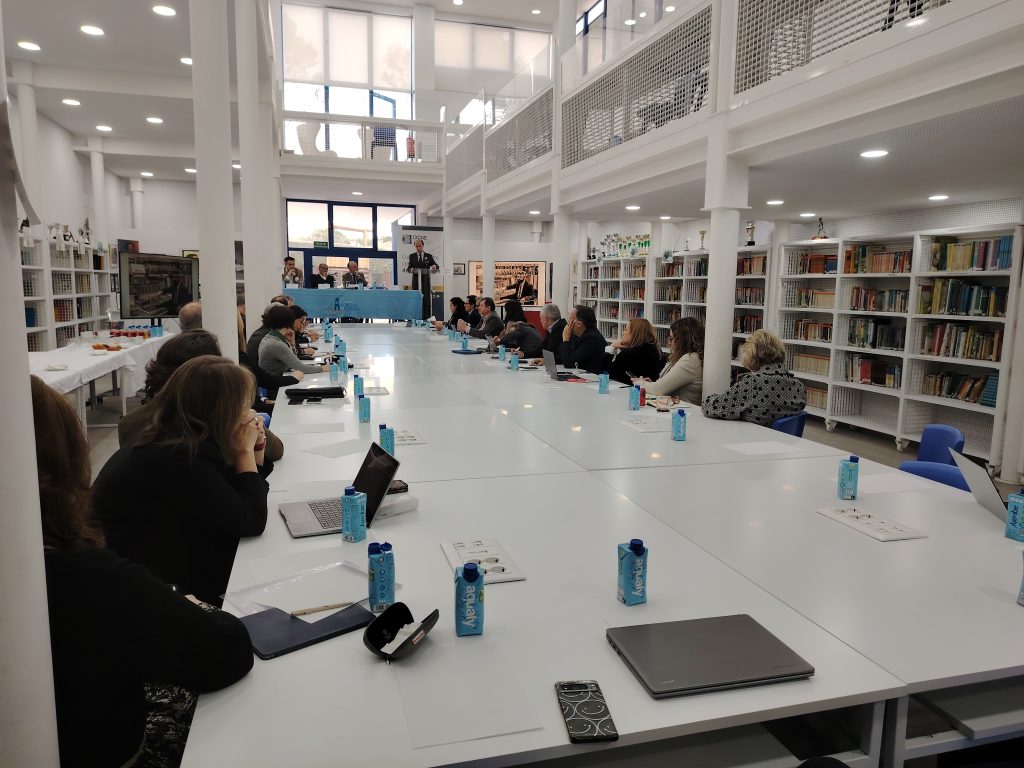
The XIV General Assembly of Associates of CICAE, held at the Colegio Virgen de Europa, brought together headmasters and directors of private schools from all over Spain in a key meeting for the future of education. The event, structured in several sessions, focused on the relationship between humanism and artificial intelligence, as well as on the impact of Generative Artificial Intelligence (GAI) on teaching practice.
Jaime Olmedo, rector of the UCJC, offers a reflection on the importance of the balance between humanism and artificial intelligence in education.
The day began with an inaugural lecture by Mr. Jaime Olmedo, rector of the Camilo José Cela University, who made a profound reflection on the importance of maintaining a balance between technological advances, such as artificial intelligence, and humanist values in the field of education.
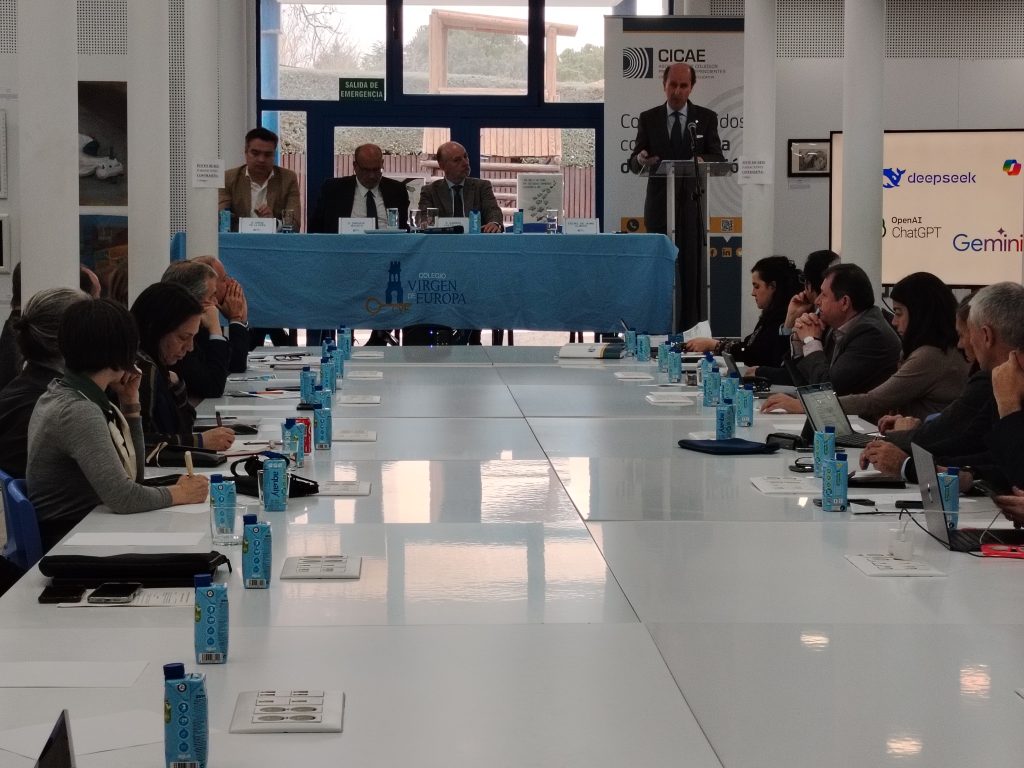
“I think we can talk about a new era.”
Olmedo pointed out that we areentering “a new era“similar to the transformation brought about by the invention of the printing press six centuries ago: “Just as the printing press six centuries ago brought about a change of era, I believe that AI is also creating a new era.
In this context, he highlighted how artificial intelligence is redefining knowledge and educational processes. “Accuracy-based knowledge is susceptible to being replaced,” he said, stressing that AI not only automates results, but also the processes that generate them.
In addition, he emphasized that “there has to be a limit between what we can do and what we should do,” with special emphasis on the need for ethical reflection on the use of AI. He defined the current moment as“a second Renaissance“, full of opportunities, but also of uncertainty: “No one knows what is going to happen“.
On the other hand, he highlighted the fundamental values of “truth, beauty and goodness”.truth, beauty and goodness“as immutable principles of education, which must prevail in a world where AI plays an increasingly relevant role. In this sense, he stressed that “we can achieve this with excellent training, around the search for truth, the perception of beauty and goodness”.
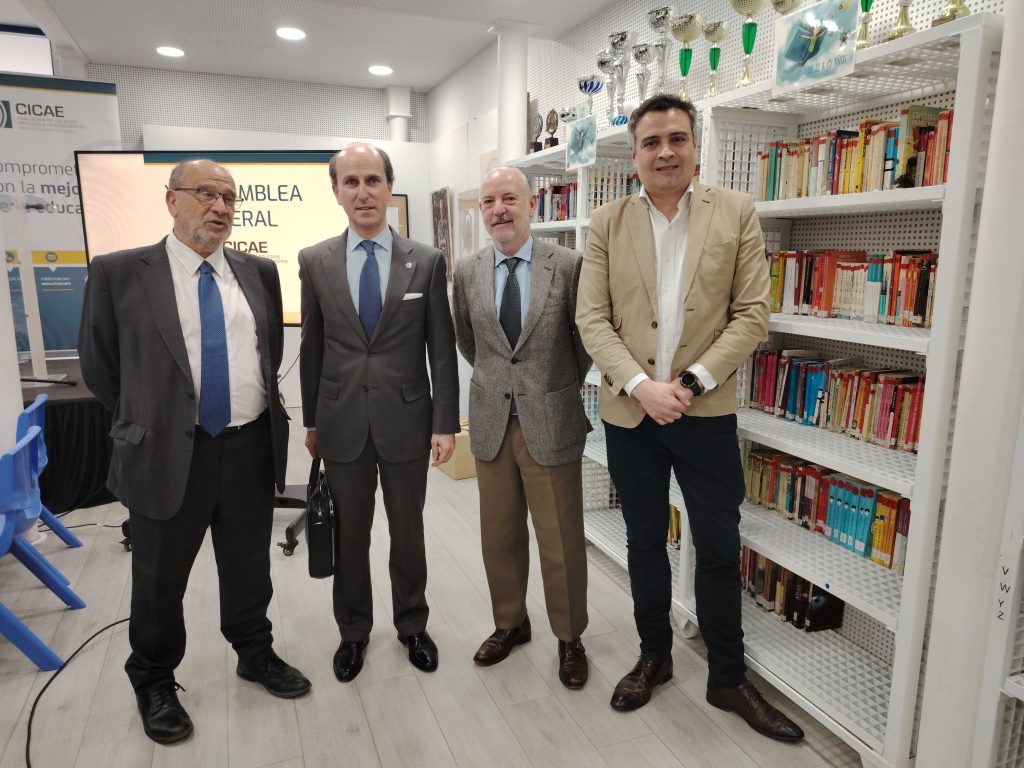
Olmedo encouraged to take advantage of the possibilities offered by AI to transform the world, but without losing the human essence. “Let’s take advantage of the possibilities of AI to change the world without letting go of humanity.”. Finally, he insisted that education has a priority role in the 21st century and the need to redefine critical thinking so that the human continues to prevail in an environment where machines take on increasingly sophisticated functions.
Likewise, the opening day of the Assembly was attended by Mr. Jorge de la Peña, General Director of Concerted Education, Scholarships and Study Aids, who highlighted the importance of attending conferences such as the one given by Mr. Jaime Olmedo, in which topics of vital importance for the educational system are reflected upon.
Generative AI: A Strategic Pillar for Educational Management
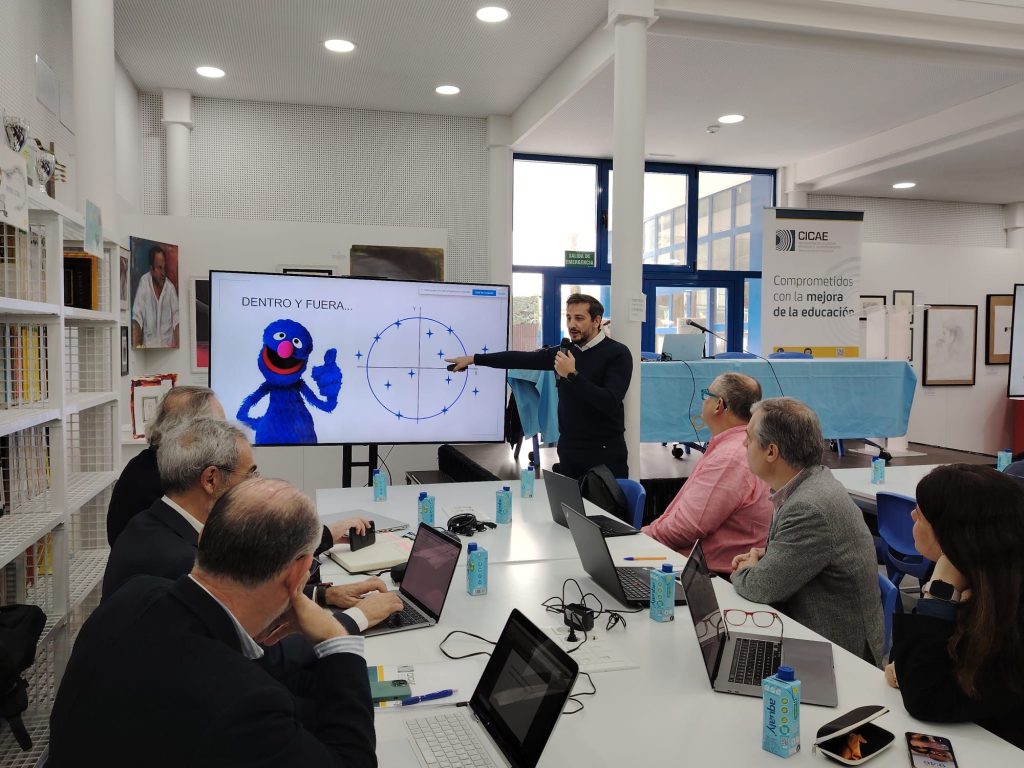
Learning about the role of artificial intelligence in education continued the next day. Carlos Rabazo, expert in AI and digital transformation at Telefónica, led a day aimed at directors and managers of CICAE schools, where practical tools to improve decision making and organizational efficiency through AI were analyzed.
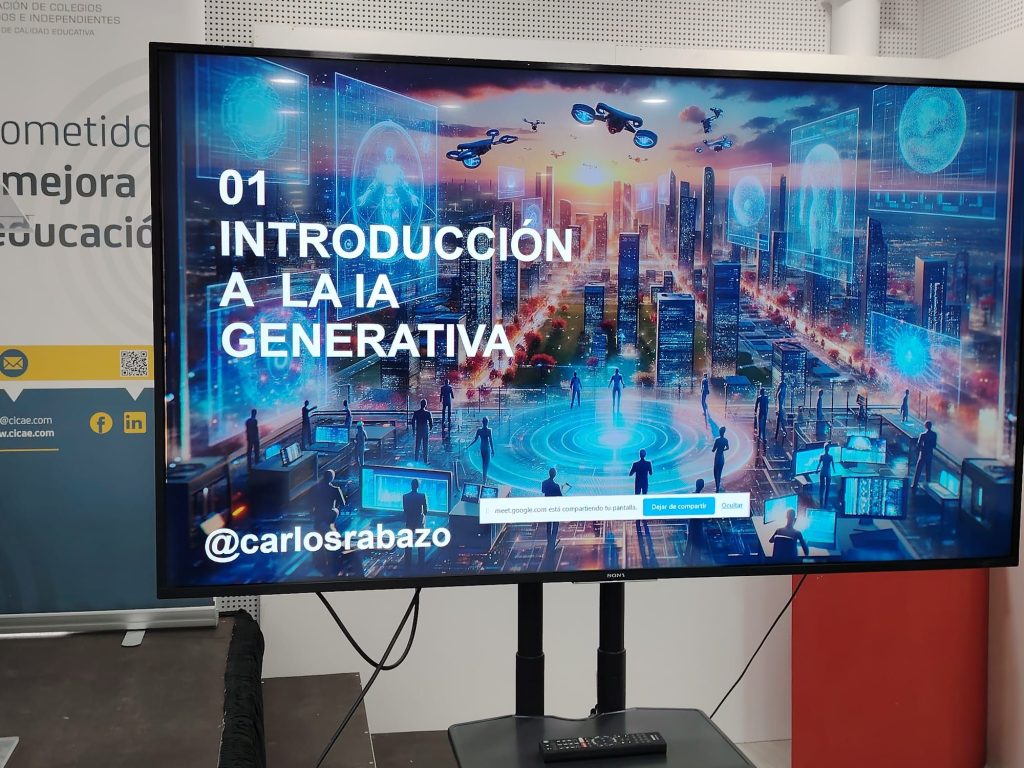
The objectives of the day included:
- To understand the impact of IAG on education and management.
- Provide management teams with tools to optimize administrative and academic processes.
- Explore real use cases and strategies for effective implementation of AI in schools.
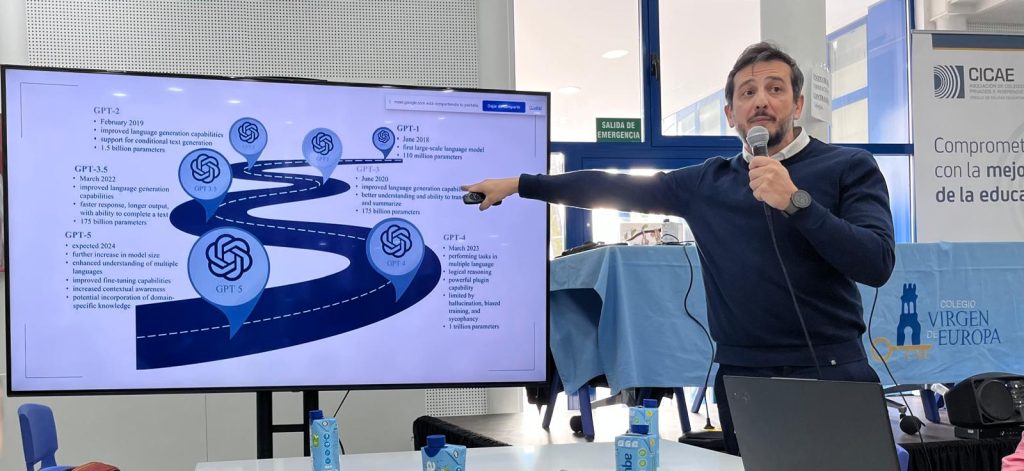
Practical Workshops for Teaching Teams: AI in the Classroom
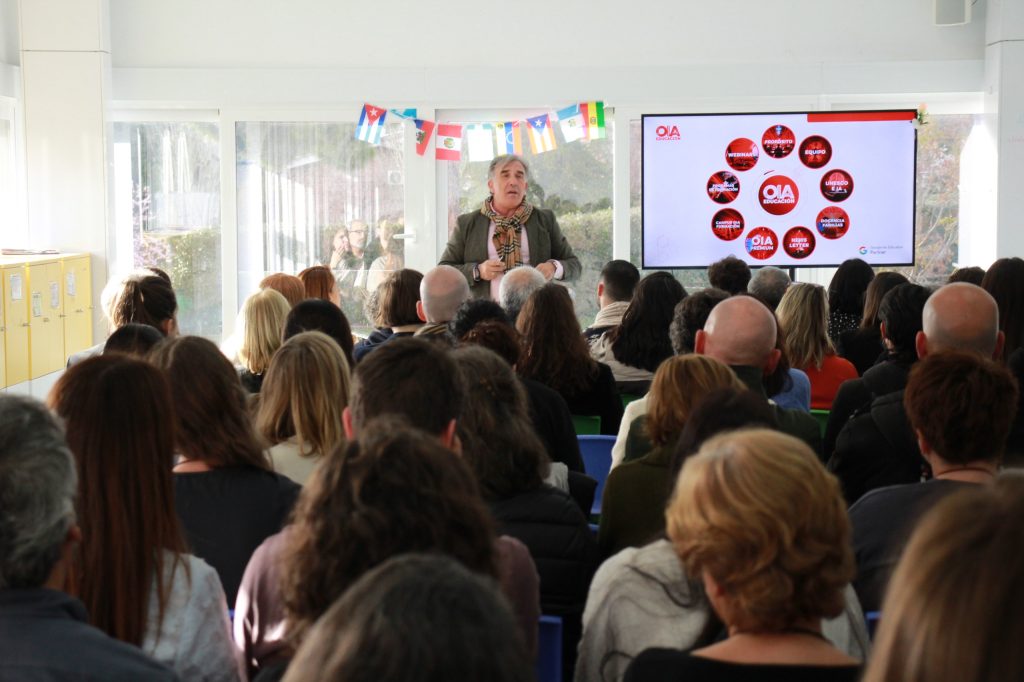
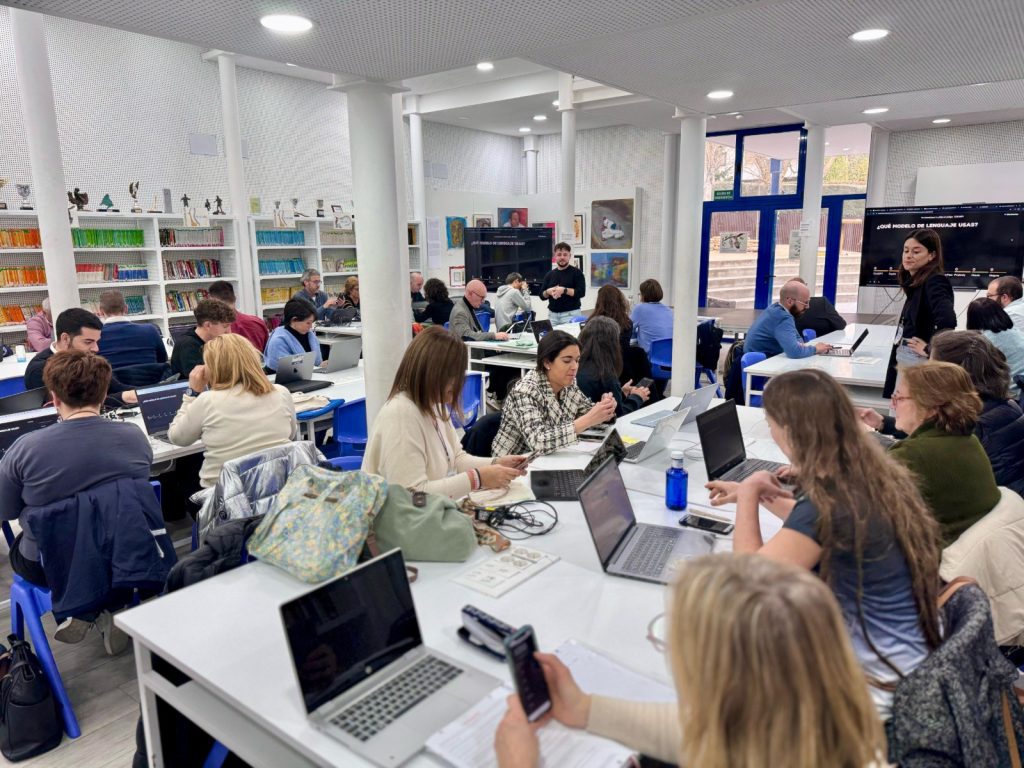
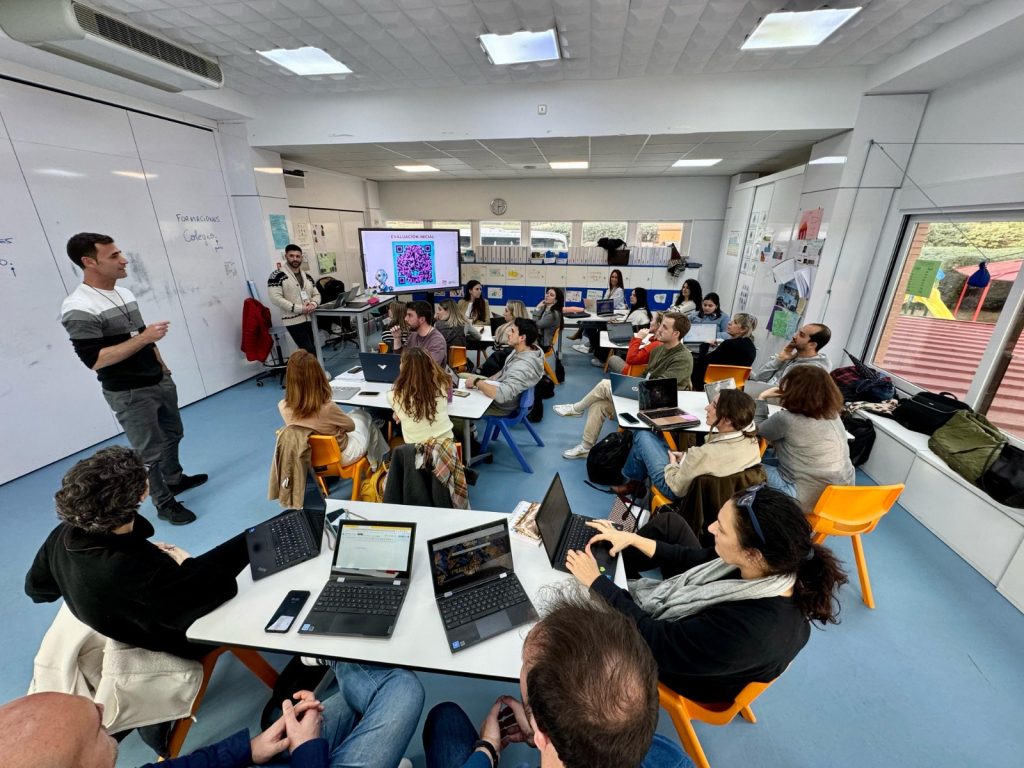
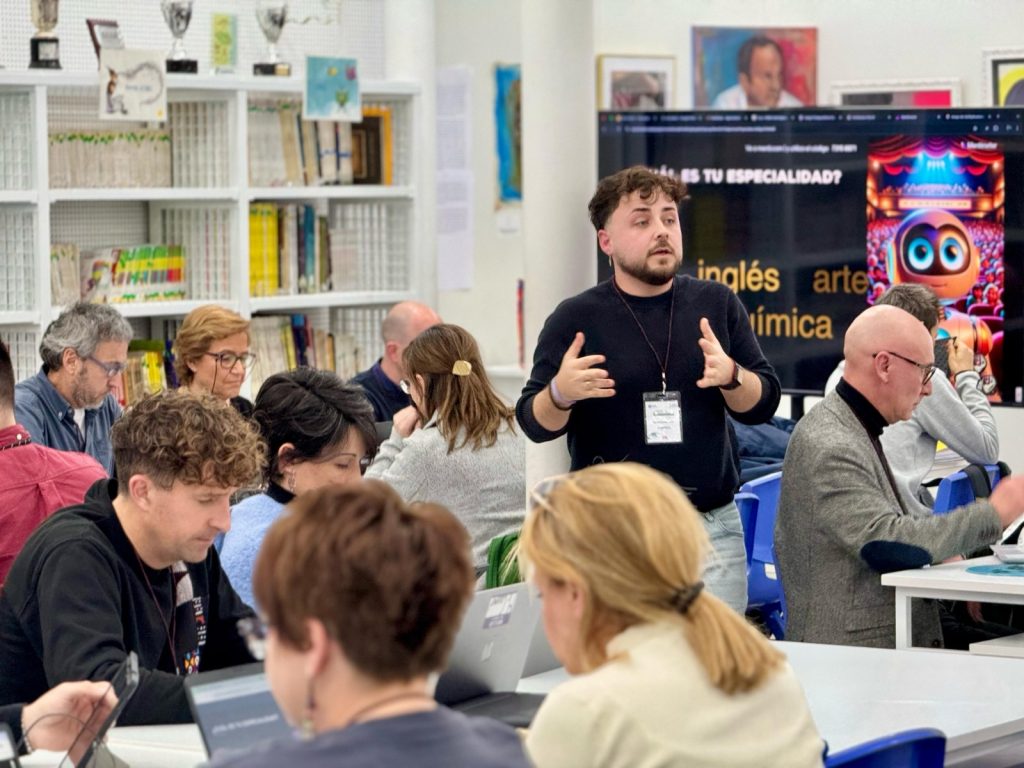
Practical sessions were also held for teachers and pedagogical directors in order to promote their knowledge on the use of Generative Artificial Intelligence in the classroom. The sessions focused on didactic strategies adapted to the different educational stages: infant, primary, secondary and high school and pedagogical management.
Among them, the creation of playful experiences with AI, interactive stories and multimedia content design (children); the use of AI to enhance reading and writing comprehension, personalization of learning and formative assessment (primary); the application of language models in the classroom, pedagogical assistants and critical thinking with AI (secondary and high school); or strategies for the implementation of AI in educational centers, relationship with families and management tools (pedagogical management).
The XIV General Assembly of CICAE has reaffirmed its commitment to innovation and educational excellence, providing member schools with a space for reflection and learning about the role of artificial intelligence in teaching and educational management. Through these meetings, CICAE continues to promote the transformation of the education sector and the development of new methodologies adapted to the challenges of the 21st century.


